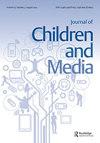Connected to devices, disconnected from children: struggles of urban, dual-earning parents in India during COVID-19
IF 2.1
3区 心理学
Q2 COMMUNICATION
引用次数: 2
Abstract
To contain the spread of COVID-19 disease in the country, the Government of India announced a country-wide lockdown on March 25 2020 that remained enforced till 31 May 2020. This lockdown was imposed without much notice and was one of the most restrictive lockdowns imposed by any country (Daniyal, 2020). For instance, restrictions during the lockdown included a total ban on people’s movement outside the home, except for availing essential commodities or emergency medical facilities, no transportation, closure of public places and educational institutions with the latter asked to conduct online classes. Besides, all offices (public and private) except those providing essential services were ordered to switch to work-from-home mode. As the country tried to adapt to the new situation, families in India faced several challenges. In this commentary, I focus on the difficulties faced by dual-earner families in urban India. Dual-earner families are those in which both spouses are employed in full-time employment outside homes (D’Cruz & Bharat, 2001). Available data tells that 20.1% of urban households in India have dual-earning members (Shukla, 2010), and nine million urban households have family members employed in knowledge-based jobs (professional, technical, administrative, executive, or managerial work). My family is one such family. I work in academia; my husband works for a global technology company, and we have two young children. In the subsequent paragraphs using personal anecdotes as examples I reflect upon three specific challenges that affected dual-earner families during the lockdown, with implications for parent-child relationships. First, the lockdown increased work pressures for both parents. Jobs in India’s knowledge-based organizations are demanding and involve long working hours and stringent deadlines (Bansal & Agarwal, 2017). As work pressures intensified during the lockdown, parents employed in these organizations faced a hectic work schedule. For dual-earner families, this meant that both parents, working from home, had more office work than usual. For instance, as a university teacher, I had to teach classes online and redesign a qualitative study’s data collection plan because the lockdown had derailed the existing plan. My husband had to attend several lengthy online meetings a day. Office work was so与设备相连,与儿童隔绝:2019冠状病毒病期间印度城市双职工父母的挣扎
为了遏制COVID-19疾病在该国的传播,印度政府于2020年3月25日宣布在全国范围内实施封锁,封锁将持续到2020年5月31日。这次封锁是在没有太多通知的情况下实施的,是所有国家实施的最严格的封锁之一(Daniyal, 2020)。例如,封锁期间的限制包括全面禁止人们除使用基本商品或紧急医疗设施外外出,禁止交通,关闭公共场所和教育机构,并要求后者进行在线课程。此外,除了提供基本服务的办公室外,所有办公室(公共和私人)都被命令改为在家工作模式。在国家努力适应新形势的同时,印度的家庭面临着几个挑战。在这篇评论中,我主要关注印度城市双职工家庭所面临的困难。双收入家庭是指夫妻双方都在家庭以外从事全职工作的家庭(D’cruz & Bharat, 2001)。现有数据显示,印度20.1%的城市家庭有双职工(Shukla, 2010), 900万城市家庭有家庭成员从事知识型工作(专业、技术、行政、行政或管理工作)。我的家庭就是这样一个家庭。我在学术界工作;我丈夫在一家全球科技公司工作,我们有两个年幼的孩子。在随后的段落中,我以个人轶事为例,反思了封城期间影响双职工家庭的三个具体挑战,以及对亲子关系的影响。首先,封锁增加了父母双方的工作压力。印度知识型组织的工作要求很高,涉及长时间工作和严格的截止日期(Bansal & Agarwal, 2017)。由于在封锁期间工作压力加大,在这些组织工作的父母面临着繁忙的工作日程。对于双职工家庭来说,这意味着父母双方都在家工作,要比平时做更多的办公室工作。例如,作为一名大学教师,我不得不在线授课,并重新设计一项定性研究的数据收集计划,因为封锁打乱了现有的计划。我丈夫每天都要参加几个冗长的在线会议。办公室工作是这样的
本文章由计算机程序翻译,如有差异,请以英文原文为准。
求助全文
约1分钟内获得全文
求助全文

 求助内容:
求助内容: 应助结果提醒方式:
应助结果提醒方式:


